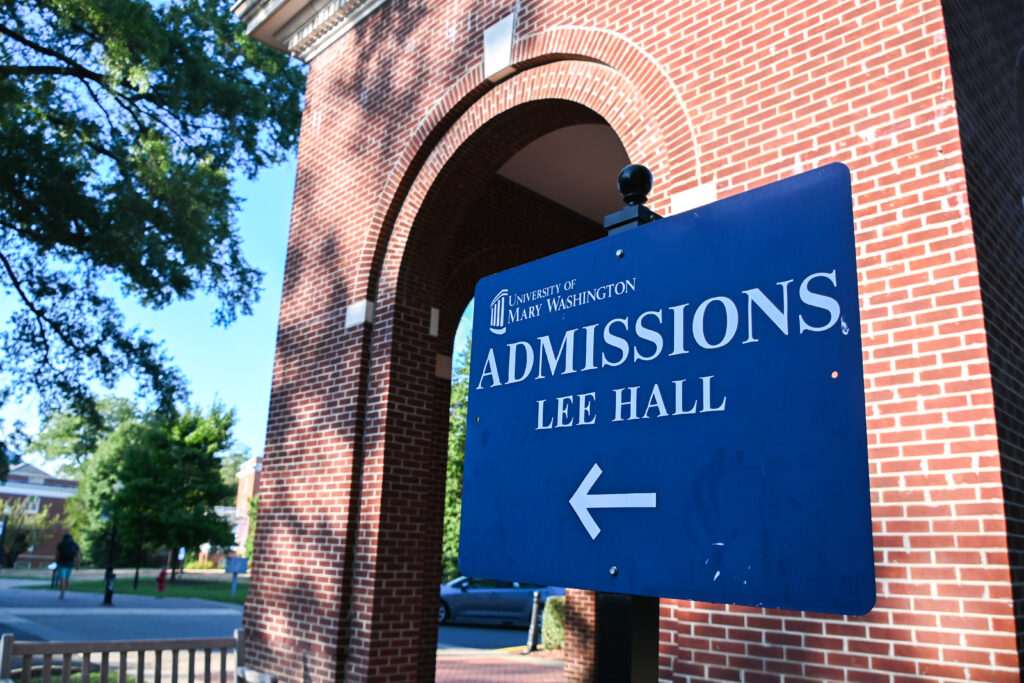State legislation banning legacy admissions in Virginia goes into effect
3 min read
Legacy admissions is not considered as a factor in first-year admissions at UMW | Abbey Magnet, The Weekly Ringer
by CARLOS NUNES
Staff Writer
On July 1, Virginia became the second state in the nation to ban legacy admissions at public universities with the passage of House Bill 48. This legislation prohibits preferential treatment for applicants with alumni or donor connections.
According to Director of First-Year Admissions Sarah Lindberg, UMW does not use legacy status as a determining factor in the admissions process.
“Legacy status is not a determining factor in admission to UMW,” she said. “Our first priority when reviewing students for admission is to ensure that they are an academic fit for our institution and they will be able to successfully complete their degree.”
There is still a question on UMW’s application for admission that asks if applicants are connected to the university via immediate or extended family, but the question is optional and not part of the review process, according to Lindberg.
The legacy admissions ban primarily affects Virginia’s highly selective public institutions like the University of Virginia and the College of William and Mary. Some institutions of similar exclusivity, like Virginia Tech, had already ceased legacy preferences before the legislation’s enactment.
Critics of preferential treatment for legacy students have long argued that they unfairly favor those from affluent backgrounds, often at the expense of deserving candidates from underrepresented communities.
“Applying and getting into colleges is an accomplishment in itself and every student should have equal opportunity,” said senior political science major and UMW Office of Admissions employee Shadwick Yoder. “While legacy admissions at UMW is not as massive as other Virginia public colleges, it is still something that should be blocked across the board to help create as much opportunity for students as possible.”
The bill passed the Virginia House of Delegates and State Senate unanimously with bipartisan support. U.S. Sen. Tim Kaine, a Democrat, celebrated the legacy admissions ban, as did Virginia Gov. Glenn Youngkin, a Republican, who signed the bill into law.
“We’re happy to see Virginia make this move,” said Kaine in a joint statement with U.S. Sen. Todd Young (R-IN) following the enactment of the legislation. “Now let’s build off this success and get our bill passed to end legacy and donor admissions preferences nationwide. This will promote upward mobility and fairness in the admissions process.”
Virginia Del. Dan Helmer (D-10) introduced the legislation in December 2023 and Youngkin signed it into law four months later on March 8, 2024.
“Virginians across the political spectrum want a university system that admits students based on who they are and what they’ve done, not who their parents are, and with Governor Youngkin signing this bill, that has become the law of the land in Virginia,” said Helmer in a statement to ABC 8 NEWS.
For future applicants, this shift means admissions decisions will be based solely on merit, including academic performance, extracurricular involvement and personal achievement. This change is intended to create new opportunities for students from all socio-economic backgrounds particularly those without legacy or donor connections, who can now compete on a more level playing field.
“A legacy ban on public institutions is long overdue and something that I hope private universities will consider soon as well. Speaking as a legacy student whose mother attended Mary Washington, I do not think connections such as family alumni or donors should impact the decision on an individual student,” said Yoder.


